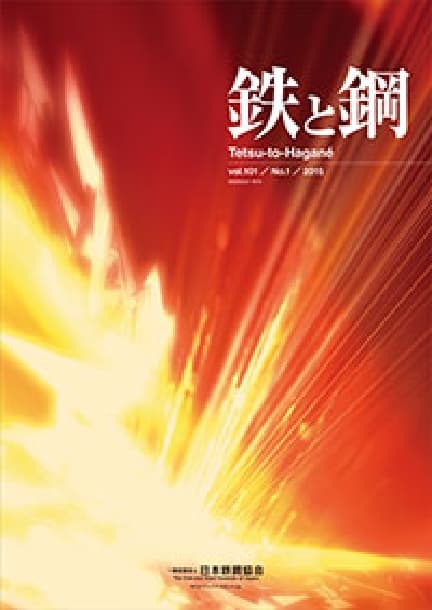Tensile Strength of Carbon Steel during and after Solidification
Hideo MIZUKAMI, Sei HIRAKI, Masayuki KAWAMOTO, Tadao WATANABE
pp. 763-769
Abstract
Phase dependence of tensile strength of carbon steel during and after solidification has been studied by a technique for high temperature tensile test The experimental thechnique enabled a sample to melt and solidify without crucible, and measured a minute load in a solidificatlon temperature range.
A numerical model for the analysis of phase transformation during and after solidification was developed with an assumption of local equilibrium at interfaces.
The tensile strength of carbon steel was dependent on the phase state but not composition. Predicted equations of tensile strength of δ phase and γ phase were estimated from experimental results.
σδ=0.011(Tδ, start-T)+1.1, MPa
σγ=0.067(Tγ, start-T)+65, MPa
0, 0005 mass%≤C≤0.55 mass%, 1550K≤Temp.≤1800K.
Tensile strength of δ phase state is smaller than that of γ phase, and temperature dependence of tensile strength of δ phase is also smaller than that of γ phase










